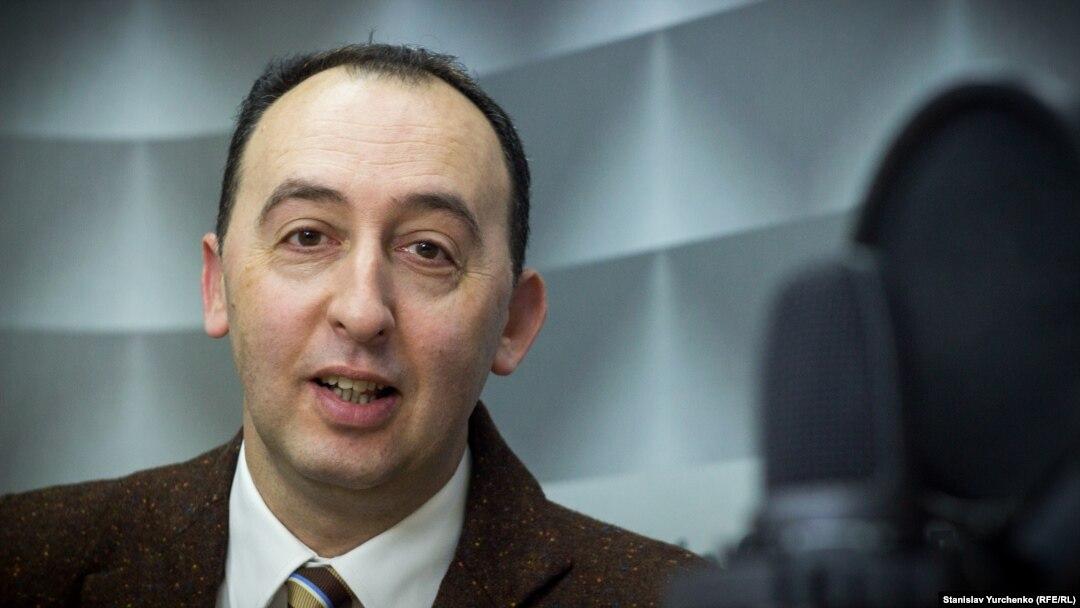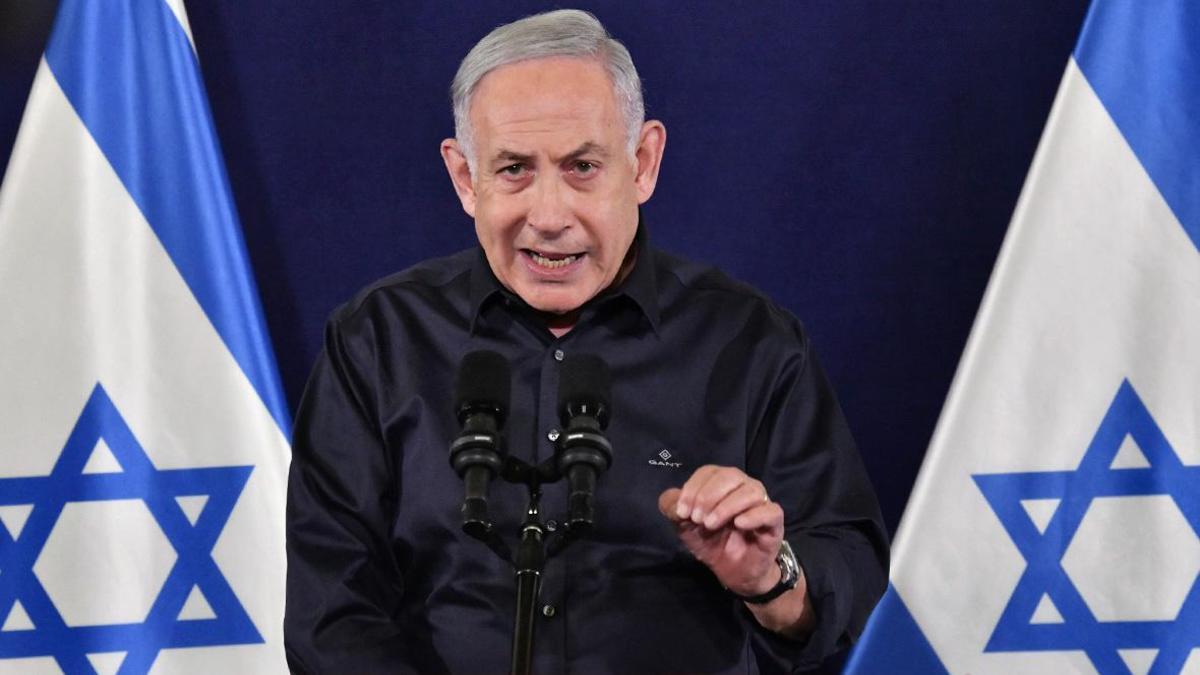Negotiations and tensions grow as Israel faces potential strike Could Iran’s retaliation escalate into regional war?
Iran is engaged in discussions with Western countries regarding a potential retaliatory strike against Israel in response to the assassination of Hamas political bureau chief Ismail Haniyeh. Reuters reports that these negotiations, involving Tehran, Washington, and other Western capitals, have been ongoing for several days. The US is actively urging its allies, including Türkiye, to influence Iran to deter any attack on Israel.
Amid these developments, there are indications that Iran may be considering involvement in peace talks concerning the Gaza Strip, linking the progress of these negotiations to the possibility of a future attack.
The question arises: Is an Iranian strike on Israel now seemingly inevitable, or are there plausible scenarios where Iran’s leadership is hesitant and searching for an optimal solution? Tehran might also be weighing the risk of a more severe response from Israel and the West.
In response to a request from Caliber.Az, prominent regional experts have undertaken an evaluation of the situation.
Journalist and historian Shimon Briman noted that it has been 14 days since the assassination of Ismail Haniyeh in Tehran and the subsequent Iranian declaration of retaliation against Israel.

The expert noted that historically, Iran has acted on its threats of retaliation within 12 days of making them. However, three key factors are currently inhibiting their response.
Firstly, the United States has mobilized unprecedented military resources to prevent regional escalation. This includes deploying aircraft carriers, submarines, advanced aircraft, tens of thousands of troops, and resuming arms supplies to Israel that had previously been delayed by the Biden administration.
In addition, the US has issued a strong public warning against aggression. Iran has also received written assurances from the leaders of the UK, France, Germany, and Italy, pledging their support for Israel's defence. This international backing is undoubtedly deterring Iran and Hezbollah from launching a large-scale direct attack on Israel.
Secondly, Israel's military and political leadership have sent a clear message to Tehran: there will be no repeat of the restraint shown after the Iranian missile attack on April 13. Instead, Israel has vowed to deliver a disproportionately strong response targeting Iran’s strategic infrastructure. The new Iranian president has even urged against escalating the situation in discussions with Ayatollah Khamenei, fearing that Israeli retaliation, such as strikes on oil facilities, ports, or power plants, could trigger an economic collapse that might topple the regime.
This same factor is currently restraining Hezbollah from launching a major rocket attack on Israel. Sheikh Nasrallah understands that such an attack could devastate Lebanon's economy, potentially pushing it back into a pre-modern state. Nonetheless, the expert cautions that religious extremists may not always act rationally, and decisions in Tehran and Nasrallah’s bunker are likely to be heavily influenced by revolutionary ideology.
Thirdly, the expert explains, Iran is currently holding off to allow for a new round of ceasefire negotiations in the Gaza Strip. Additionally, Iran has suggested that if Israel wishes to avoid an attack, it should sign a deal with Hamas to end the conflict and secure the release of Israeli hostages.
The expert expresses hope that Israeli leaders are astute enough to recognize that accepting such advice from their adversaries would be unwise. He argues that Israel is under immense pressure from the Biden administration, which appears to be siding with Israel's enemies and pushing for a deal. This, he suggests, is driven by significant domestic and electoral interests: with the November 2024 elections approaching, the Biden-Harris team aims to present themselves as peacemakers who ended the Gaza conflict. For outgoing President Biden, this could be a path to a Nobel Peace Prize, motivating Democrats to pressure Israel into a deal at the expense of its security interests.

The historian points out that while opinions on Israeli Prime Minister Benjamin Netanyahu are deeply divided, Netanyahu remains the key figure capable of resisting American pressure and rejecting a deal that could compromise Israel's security.
According to the expert, while opinions on current Israeli Prime Minister Benjamin Netanyahu are deeply divided among Israelis, Netanyahu is the only figure capable of resisting American pressure. Briman argues that accepting a deal that would end the conflict while allowing Hamas to retain its military and political power in Gaza, or leaving Hezbollah close to Israel’s northern border, would be disastrous. It would undermine Israel’s deterrent systems and risk a repetition of the October 7 massacre on a larger scale.
The pundit emphasizes that Israel should persist in its efforts to physically defeat Hamas and counter Hezbollah, avoiding any deal that compromises its security, at least until early to mid-October. This period will coincide with the final stretch of the US election campaign, during which the Biden-Harris administration may be less focused on managing the Middle East crisis or pressuring Israel.
As for Iran’s potential retaliation, the expert suggests it might be delayed with the hope that US forces will soon start withdrawing from the region and that Israel will tire from remaining on high alert. Tehran could also opt for indirect actions, such as targeting Israeli embassies or diplomats abroad, rather than a direct attack on Israeli territory. Historical precedents include Iranian involvement in the 1994 bombing of the Jewish Community Center in Buenos Aires.
The anticipation of an Iranian response has sparked a wave of humor and jokes in Israel, reflecting the resilience and wit of the Israeli people. One popular joke circulating online is: “Have you received the Iranian response yet? No? Then check if it landed in your spam folder.”
Another joke that emerged around the time of the Jewish Tisha B’Av (August 12-13), a day of fasting and mourning commemorating the destruction of the First and Second Temples, was: “It’s a waste to stock up on water in the bomb shelter—Iran is attacking during the fast.”
The most popular quip circulating on social media is: “Ayatollah Khamenei announced that Iran will attack any country that keeps asking when the Iranian response will come against Israel,” according to Shimon Briman.
Israeli analyst, political and public figure David Eidelman noted that the current situation seems to be a battle of information and spin.

“It’s not that these threats are having no impact. I believe most of the threats are pleasing oil traders and Russia, which views the Middle Eastern events as a distraction from the war in Ukraine. While we are currently witnessing a stream of wait-and-see communications, it’s not accurate to say this information campaign is harmless for Israel. It is affecting the Israeli economy and the psyche of its citizens,” Eidelman noted.
Regarding the assassination of Ismail Haniyeh, Eidelman pointed out that Israel has not officially acknowledged that the operation was conducted by its own decision.
“It’s important to note that Israel typically claims responsibility for assassinations in Beirut, Damascus, and Gaza. The assassination of Ismail Haniyeh has multiple beneficiaries. For instance, Yahya Sinwar, the current leader of Hamas, is a significant beneficiary. He has unified the organization's two wings for the first time in its history: the political wing, which aimed to appear respectable, and the militant wing, which was involved in terrorism and violence. Now, both factions are led by one person.
Additionally, Iran benefits from Haniyeh’s death because Hamas was under dual influence: Tehran provided military resources, experts, and advisors, while Qatar provided financial support. Haniyeh and his predecessor as head of Hamas’ political bureau were primarily aligned with Qatar, which was not entirely acceptable to Shiite Iran. With Haniyeh's death, Iran’s influence over its proxies in Hamas has increased, as they will now be fully under its control. Those remaining in Qatar, though still wealthy, seem to have lost their influence.
Finally, the assassination of Haniyeh also benefits Russia. As previously mentioned, it diverts attention from Russia’s activities,” explained the analyst.
How inevitable is a potential future strike by Iran against Israel? According to the interviewee, nothing in this world is truly inevitable except the death of all living things.
"Thus, a strike could happen, or it might not, and its intensity could vary. We recall the spring strike, which resulted in only one Bedouin girl being harmed, due to her being in an area not protected by air defence systems—in a desert, in an illegal structure not even marked on the map.
In response, Israelis demonstrated to the Iranians their capability to intercept missiles and disable their air defence systems. If Iran is prepared to launch a significant strike today, the main question is whether Israel can defend itself effectively and whether allies will join in. Even countries that are critical of Israel have provided information on its air defences, which helped intercept Iranian missiles. This includes almost all of Iran’s western neighbors. For instance, Türkiye, as a NATO member, has shared information with the Americans, who participated in repelling the attack.
Another critical question is the potential strength of Israel’s retaliatory strike. Israel has the capability to launch an attack powerful enough to potentially cripple Iran’s nuclear program for decades, targeting facilities such as mines and launch sites. This might require extensive bombing of Iran, leading to the onset of a major regional war. Therefore, the incumbent Iranian president, who is advising the supreme leader to limit attacks to proxy forces, clearly understands the gravity of the situation. A regional war could devastate Iran to the stone age," Eidelman concluded.








